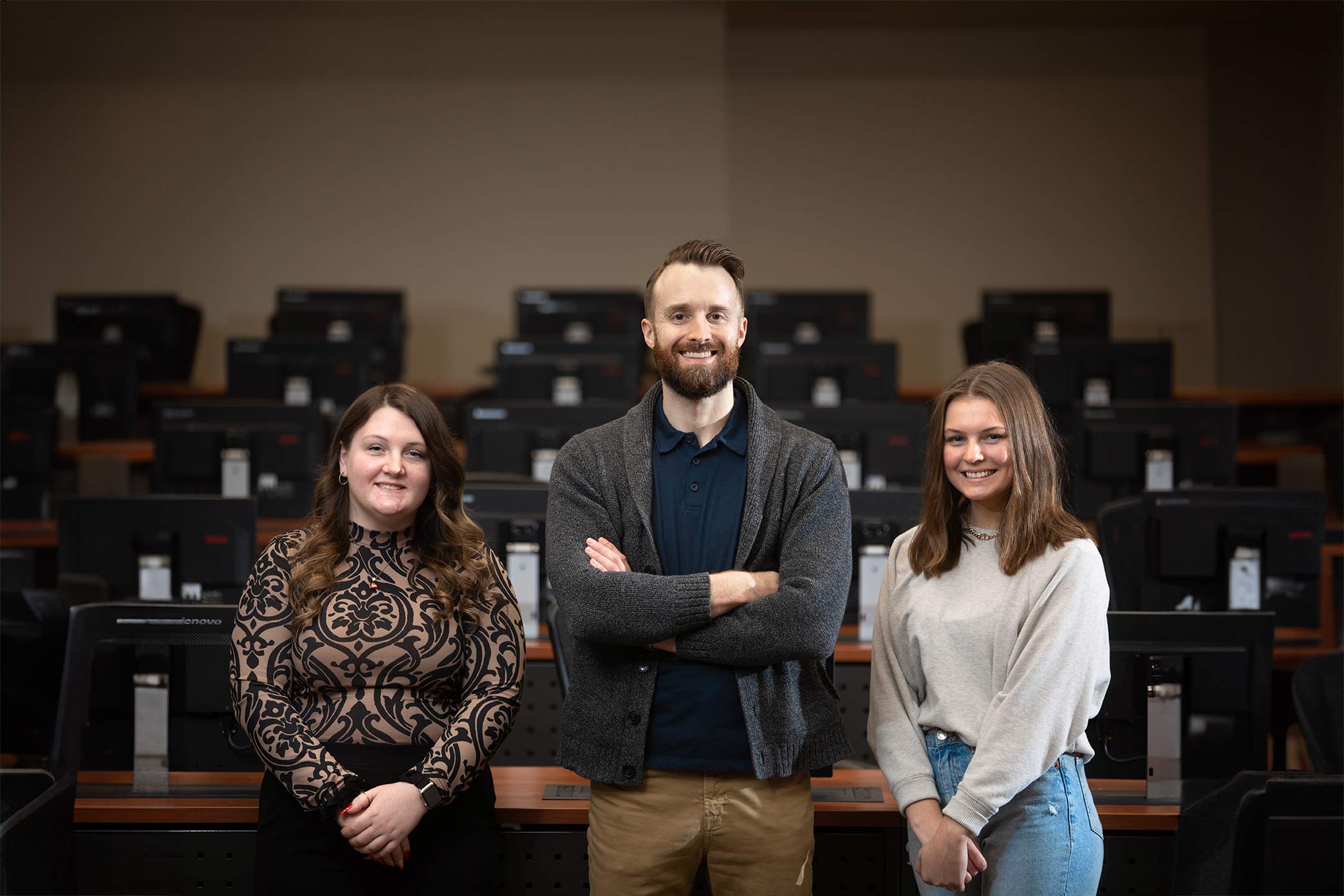Dr. Michael Baranski
Finding Focus Through Mindfulness
After transitioning from high school teaching to academia, a professor finds his true
calling helping students harness the power of mindfulness to overcome academic and
personal challenges.
Dr. Michael Baranski
Finding Focus Through Mindfulness
After transitioning from high school teaching to academia, a professor finds his true calling helping students harness the power of mindfulness to overcome academic and personal challenges.

"Nobody knows everything. Nobody can do everything right all the time... Support is going to help. It's going to help you recover faster. Whatever you were trying to achieve in the first place, it's going to help you get there quicker or even better."
Dr. Michael Baranski began his career fueled by a passion for education. Initially, he was a high school civics and economics teacher, passionate about education but facing the economic realities of the Great Recession. Seeking stability led him briefly into pharmaceutical sales, an experience he describes as the "complete inverse of teaching"—financially viable, but not personally fulfilling. This crossroads prompted reflection: how could he combine his love for education with a sustainable career and a genuine interest in student well-being?
The answer emerged from his growing curiosity about student attention and motivation, intertwined with a personal exploration of mindfulness. "I had started to see the benefit and just maybe intrigued about what this could do for someone's focus, you know, especially in an educational context," Dr. Baranski recalls. Pursuing a Ph.D. seemed the next step, but breaking into psychology graduate programs without the typical background proved challenging. A lucky meeting occurred when connecting with a professor in educational psychology whose office was adorned with mindfulness and Buddha quotes. "I saw all over his office were mindfulness quotes... like, oh, do you like mindfulness? And we jelled over that," he shares. This connection opened the door to researching the cognitive effects of mindfulness meditation.
Now an Assistant Professor in Psychology at PennWest, Dr. Baranski’s research initially focused on how mindfulness improves working memory and executive functions. However, his work has evolved towards a more holistic application. He helps students understand that mindfulness is more than just concentrating; it’s about observing the mind's tendencies. He explains that often "we kind of treat our thoughts as reality," leaving us 'at the mercy of the next thought' when stories turn stressful or sad. Mindfulness practice helps foster a "looser relationship" with thoughts, recognizing them as transient mental events rather than fixed realities, which is crucial for managing stress, anxiety, and setbacks. "You are not your next thought," he advises, especially during moments of panic.
At PennWest, Dr. Baranski serves as the faculty advisor to the Mindfulness and Meditation Club and has offered guided meditations during stressful times like finals week. He emphasizes that mindfulness provides practical tools—an "off-ramp," as he calls it—for students feeling overwhelmed. He also highlights practices like loving-kindness meditation, noting it's "a good way to just feel better because feeling that love is a nice feeling, but it just kinda shifts the focus... to maybe a better conscious state." His work embodies PennWest's commitment to empowering students with practical strategies for academic success and personal resilience, offering a purposeful education that addresses the whole person.